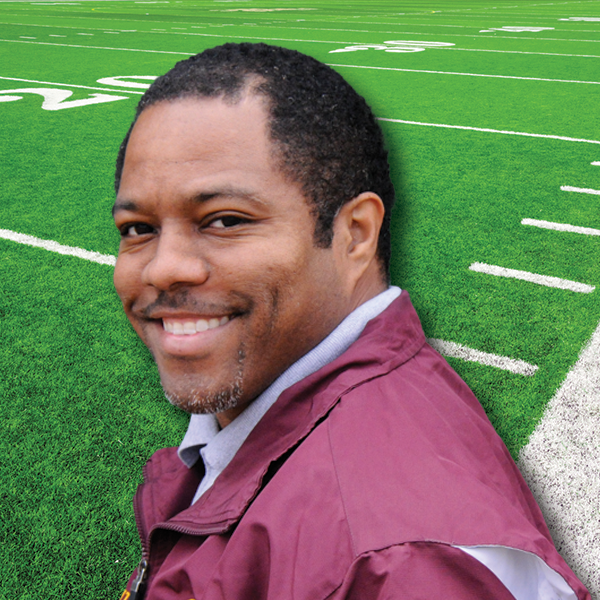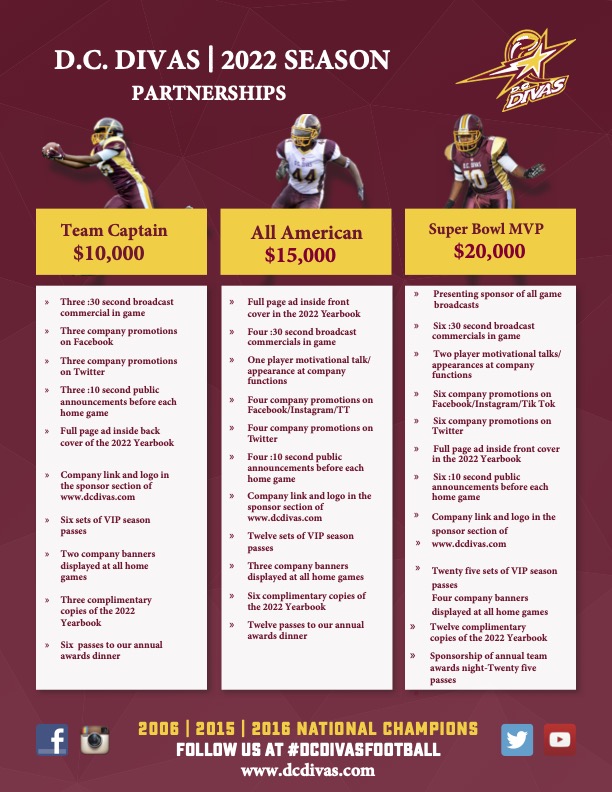Coach Willie Bennett
| Season(s) Coaching the Divas: 2014-2017 Defensive Coordinator – 2014-2017 Other Coaching Experience: Playing Experience: |
|
Coach Willie Bennett Q&A Why did you decide to get into coaching after your playing career was over? After my senior year, I went straight from playing to coaching, and I quickly realized I was having more fun on that side of it. I became a defensive assistant coach at Alabama A&M, my first job out of college. The first player I got to watch every day at practice was Robert Mathis, who set the NCAA record that year for sacks. It made my job a lot easier to just watch him sack the quarterback, force fumbles, and do everything else on defense. [Mathis later became the all-time sacks leader of the NFL’s Indianapolis Colts and won the AFC Defensive Player of the Year Award in 2013.] I was at Alabama A&M for four years, then I went to North Carolina A&T. Finally, I coached at St. Augustine’s College in North Carolina for six years before I decided to come back to the city and become an athletic director for D.C. Public Schools. How did you find out about the D.C. Divas and come to coach for us? I moved to Alabama and started my college coaching career, but I continued to follow the Divas for years. I stayed in touch with a lot of the Divas players, like T.K. Washington, who also went to Woodson High School. I knew a lot of the Divas players who were originally from the city. Any time I could talk about the D.C. Divas, I would, and when I finally moved back to D.C., I contacted the team about a coaching position. How is coaching women’s football different from coaching men? Women’s football is completely different. In terms of their knowledge base, we have pee-wee players and the college elite playing on the same team. Every year you have young ladies who join the team as rookies, and for many of them, it’s their first time ever playing on a football team. She may not know how to put her helmet on, how to put her pads on, or how to tighten her chinstrap. But on the other hand, we also have veterans who have been doing this for 12 or 14 or 16 years, and they can read coverages and make adjustments on the field that few others can make. And we’re making them all play together. That’s the challenge. But for me, this is the purest form of the game of football, because it’s innocent and clean and not all about the athleticism. You don’t become the best just by being bigger, faster, and stronger than everyone else…you have to use your body and your technique to make this work. As coaches, it’s about being able to put people in the right position to make a play. It’s about teaching players how to block and tackle, which takes the game back to the essence of how it started in the first place. What is your overall coaching philosophy? How would you like your players to play the game? In an ideal world, I really wouldn’t have to do much because my players would already know exactly what to do. I wouldn’t even necessarily have to call the plays – the players could do that themselves, because they’d know everything that should be done based off of how the offense is set up and the adjustments we make to that. When they add their aggression and athleticism to our game plan, my job becomes easy. I could practically sit back on the sidelines and watch the game like every other fan! |


